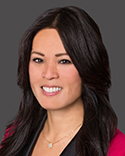A 2022 STAATUS Index survey was conducted of 5,235 Americans across varied racial/ethnic groups, demographic characteristics, and geographies in an effort to better understand how perceptions towards Asian American and Pacific Islander (AAPIs) evolve over time. (https://staatus-index.s3.amazonaws.com/2023/STAATUS_Index_2023.pdf). There are a lot of really interesting key findings, but for purposes of this post, I want to briefly focus on visibility and acceptance from my personal perspective.
Visibility. The U.S. Census Bureau estimates there were about 24 million Asian residents in the United States in 2021, yet the STAATUS Index study reports that 26% of respondents were unable to name a famous Asian American. The next two most frequent responses after “I don’t know” over the past three years have been Jackie Chan, a 69 year old Hong Kong actor (not Asian American), and Bruce Lee (who died 50 years ago). This finding aligns with my personal experience. Throughout my life I have been told that I look like Kristi Yamaguchi (a 51 year old Japanese American former figure skater famous in the early 90s), Lucy Liu (a 54 year old Chinese American actor), and more recently, Dr. Pimple Popper (a 52 year old Chinese American dermatologist). I don’t look like any of these women, but it’s a reflection of how few famous Asian women (let alone Asian American women) there are for people to draw comparison. I get it – to many people, I look like a 50 year old Asian woman. Jokes aside, I do believe that visibility is important so that Asian Americans aren’t just portrayed in mainstream American culture and media as Kung Fu martial artists or geisha sex workers (see page 33 of the STAATUS Index study). The fact that we have over fifty-five Asian American attorneys at Duane Morris is a great step to being visible and seen as smart, witty, and business-minded people.
Acceptance. The STAATUS Index study found that Asian Americans are among the least likely racial groups to feel they belong in the U.S., with only 22% of respondents completely agreeing that they feel they belong and are accepted (see page 39 of the STAATUS Index study). Fortunately for me, I have had a different experience, which I believe is largely because I am adopted. I have an easy to pronounce Anglo-Saxon first name and a German last name. And while I was born in Korea, I was raised from a young age in Minneapolis, Minnesota by my adopted Caucasian family. I have been told by many that I am “Americanized” in how I dress, look, and lack of accent. I am lucky in this respect or blissfully ignorant due to my belief that any difficulties I’ve had with people stem from personality (mine or theirs), rather than ethnicity. But given the results of this study, many people believe race relations are getting worse (57% of respondents) with 75% of respondents believing racist attacks against Asian Americans are a problem today (see pages 12, 14) and 39% of Asian Americans do not feel like they belong in their workplace (see page 40). This is troubling and highlights how important it is for people to have resource groups, colleagues, and spaces in the workplace where they can feel they belong, accepted, and safe. Being a part of the Duane Morris Asian American Attorneys Employee Resource Group (AAAERG) has been a wonderful way to connect with attorneys in the firm and build a sense of community. One of the more delightful aspects of this AAAERG to me is that it is not limited to Asian Americans – we have members who are not American and are not Asian, but who want to be part of the community based on their personal beliefs and circumstances.
*As a postscript for research nerds, according to online sources, the majority of adopted Korean children were placed in the Midwest (Minnesota, Wisconsin, Iowa, Nebraska, Michigan, Montana and South Dakota), the Pacific Northwest (Oregon and Washington), the Northeast (New York, New Jersey, Massachusetts and Vermont), and the West (Utah and Idaho), but very few in the South or Southwest. Also, “during the 1970s and 80s, South Korea sent the largest number of children overseas for adoption – over 112,000 out of an estimated 200,000 globally – leading some to refer to the country as ‘the land of orphans.’ But many Korean children, perhaps the majority, who were sent overseas for adoption were social orphans who had at least one living parent and, in some cases, an intact family.”

